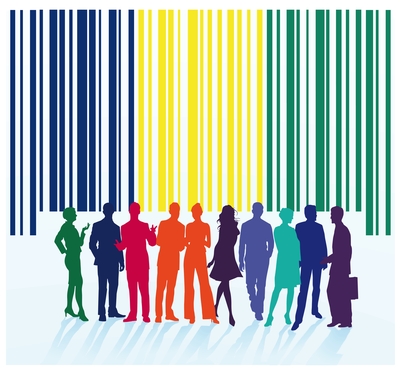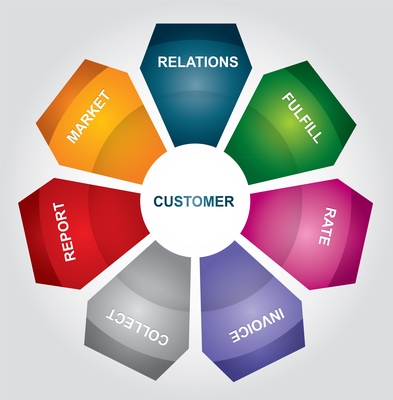Your customer is your company’s most valuable asset. We all know this. But sometimes – especially when you’re not on the front lines of sales or customer support – it can be easy to lose sight of who you’re truly working for. Not everyone on your team can design a product, sell licenses or write code, but everyone can work in a way that positively impacts customers.
Whether you interact primarily with co-workers and team mates or directly with your customers, here are 5 reasons why making your customers your #1 priority every day matters to your business.
1. Word of mouth is critical
“Recommendations from people I know” repeatedly beats other marketing tools in trustworthiness. When current customers speak highly of you to their associates and friends, this makes an impression. The same is true for negative customer service experiences. In other words, the way you, and every other person at your company, conducts yourself tells a story that comes to life in your business community.
Transparency and a willingness to admit and address mistakes go a long way. “Customers don’t expect you to be perfect – but they do expect you to fix things when they go wrong,” Donald Porter, VP of British Airways, has said. When you reach out to make a difference for a customer in a challenging situation – well, that’s a story in your favor, and you’ll want it to be told.
Tip: Say thank you and mean it. Letting customers know you appreciate their business is more than a “thanks for your order” email. Real appreciation means making follow up calls and being available to answer questions even after the sale is final.
2. Better employee morale
 The poet Coleridge said there is nothing as contagious as enthusiasm. If employees are genuinely excited about their role in your organization and about the product(s), your customers will feel that. If your employees aren’t into what they’re doing, chances are your customers will notice that as well.
The poet Coleridge said there is nothing as contagious as enthusiasm. If employees are genuinely excited about their role in your organization and about the product(s), your customers will feel that. If your employees aren’t into what they’re doing, chances are your customers will notice that as well.
One way to increase employee engagement is to make people accountable for their decisions – and then let them make those decisions! Research shows a direct correlation between employees who feel valued and empowered and positive financial returns. Being able to deal directly with customer issues (including making on-the-spot decisions and changes) strengthens your entire team. And that makes itself known all the way down the customer line.
Tip: Empower your employees to make changes that make sense, and to challenge the status quo with new ideas. Make it OK to say, “I don’t know, but I’ll find out” in response to a new or challenging customer request. And then, be sure to have a timely response time to questions – whether it’s a customer or a co-worker.
3. Honest feedback is profitable
Excellent customer service is all about listening to customers, offering solid solutions and following up on results. Naturally you want to hear good things about your products, but active and constructive critical feedback is more prone to help your company improve, setting the stage for new features, processes and greater success.
When you let your customers know that you have heard – and are acting upon – their suggestions for improvement you make them feel like they matter. People want to feel cared about. Plus, the Internet allows everyone to have a public voice regarding your products. So responding to fair feedback will make your products better.
Tip: Create a culture of transparency, where making a mistake isn’t the end of the world. Be authentic in your dealings with customers and employees, and be willing to accept criticism alongside kudos.
 4. Brand loyalty – it’s about relationships, too.
4. Brand loyalty – it’s about relationships, too.
Customers value attention, dependability and recognition. It can cost five times as much to attract a new customer as it does to retain an existing one. Brand loyalty is built not just through your products but through your relationships. Little things make a difference, like when a salesperson knows a customer by name and remembers a detail from a previous conversation; or the diligent way a developer communicates bug fixes to the customer support team so they can be follow up with customers. Engaged employees that genuinely care make a critical difference when it comes to customers leaving or staying.
Customers who feel recognized, whose needs are anticipated and who receive consistently excellent support and products will come back for more. They may even become brand ambassadors, building your reputation and prospect base.
Tip: Be proactive. For example, if you’re a developer, anticipate upcoming issues or opportunities that would impact customers. If you’re in sales, follow up on previous conversations. Keeping customer relationships strong also keeps sales strong.
5. Better bottom line
Loyal customers are critical to your company’s fiscal health. They buy more, more often, and are likely to take a chance on new products because they have faith in your care and competencies. Customer loyalty happens when you recruit the right kind of customer for your brand to begin with – and then treat them like royalty once they’re in partnership with you. When you spend resources on great service and nurture a positive work culture, you’ll build customer loyalty and over time, greater profit – on many levels.
Tip: Listen carefully to your customers. Ask “How can I help?” Wait for the answer. People want a chance to explain how they perceive their situation, and whether your solution might work. If you’re in sales, and you begin the conversation with an air of discovery, then you’re perceived as helpful rather than simply a selling machine. People value the human connection.
Amanda Kelly is a technology and communications consultant based in Seattle. When not at work, she’s reminding her German Shepherd puppy that chasing the ball is only half of the game of fetch. Amanda can be reached at www.sound-strategic.com.







